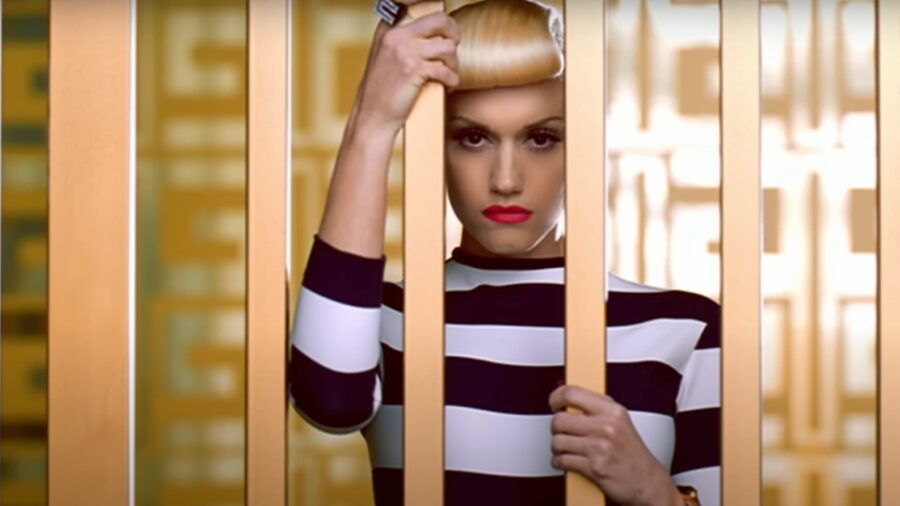Gwen Stefani Insists She’s Japanese
Gwen Stefani was interviewed recently and identified as Japanese, which has confused the entire world.
This article is more than 2 years old

Gwen Stefani’s so-called “Harajuku era” from 20 years ago is back in the news today because of comments the singer made to explain this now-controversial time in her career. According to Variety, The Voice judge was asked how she justified this cultural appropriation, and she responded by saying that she herself is Japanese. When speaking about a trip she took to the Harajuku district in Japan, she said that she looked around and said, “My God, I’m Japanese and I didn’t know it.”
If this sounds bananas to you, you’re not the only one. The interviewer pressed her to explain better why she felt it was okay to use Japanese art and imagery on her album cover and travel around with an entourage of “Harajuku Girls.” She did this while creating a whole line of Japanese-inspired perfume even though she is American, and Gwen Stefani explained that she was introduced to Japanese culture by her father. He was not Japanese either, but he did work for Yamaha and made frequent trips to Japan.
Gwen Stefani was amazed by what she learned from him about Japan. It “was a culture that was so rich with tradition, yet so futuristic [with] so much attention to art and detail and discipline and it was fascinating to me.” She then took that fateful trip to the Harajuku district herself, where she apparently discovered her true identity as a Japanese person.
Especially now, in this highly culturally sensitive era we are living in, these kinds of comments are not going over well with the public. Still, though, Gwen Stefani is not backing down. She says that she is a “super fan” of Japanese culture, and that “If [people are] going to criticize me for being a fan of something beautiful and sharing that, then I just think that doesn’t feel right.”

She said that her Harajuku era was a “beautiful time of creativity,” and that it “should be okay to be inspired by other cultures because if we’re not allowed then that’s dividing people, right?”
Whether or not Gwen Stefani has a point, this whole situation is still rather odd. This interview, originally conducted by Allure magazine, seems to have been carried out with the goal of painting Stefani in a bad light. According to the article, the singer went on to say that she is also a “little bit of an Orange County girl… and a little bit of an English girl” in addition to being a “little bit of a Japanese girl,” which the interviewer seemed to take literally, but which one would ostensibly read as meaning that all of these cultures had an influence on her own identity.
After reading Allure’s interview, a representative for Gwen Stefani contacted the writer and alerted her to the fact that she had misconstrued what the singer was trying to say. But since Stefani didn’t want to go on record again to clear things up, the article was published as-is.
The article ends with Gwen Stefani adding that she also identified with Latinx and Hispanic cultures because she was in frequent contact with them while growing up in California. Her hair, makeup, clothes, and even her taste in music was influenced by her exposure to all of these cultures, so much so that she feels that they – not so much her own Italian American and/or Irish heritage – helped make her who she is.
So, is it wrong for Gwen Stefani to say that she is Japanese when she isn’t? Probably. But that doesn’t change the fact that her Harajuku era led to some real bangers that have stood the test of time, and that will probably keep being played on the radio and at sporting events for years to come.











